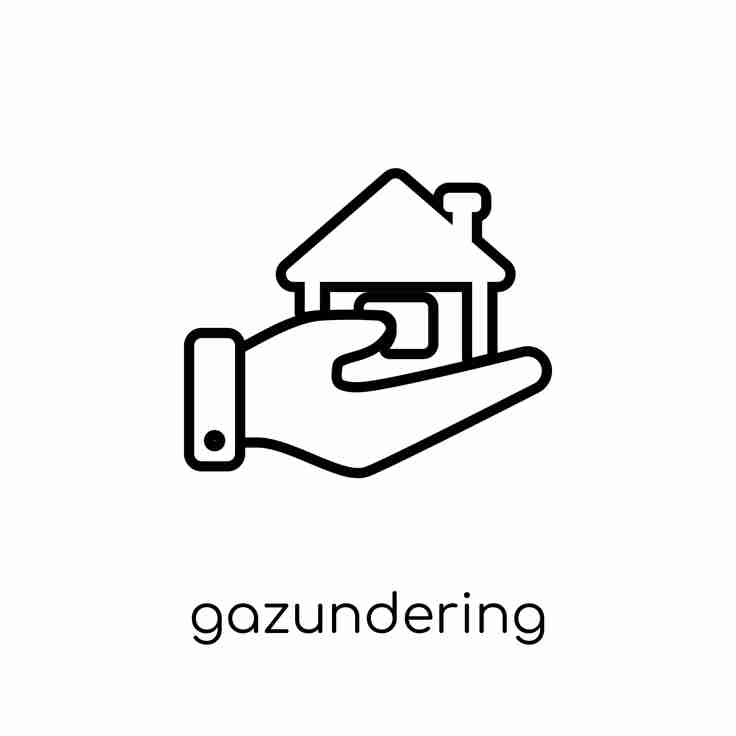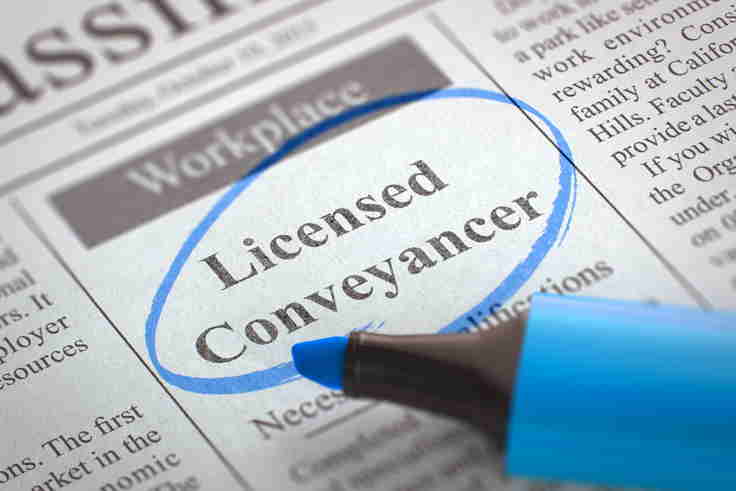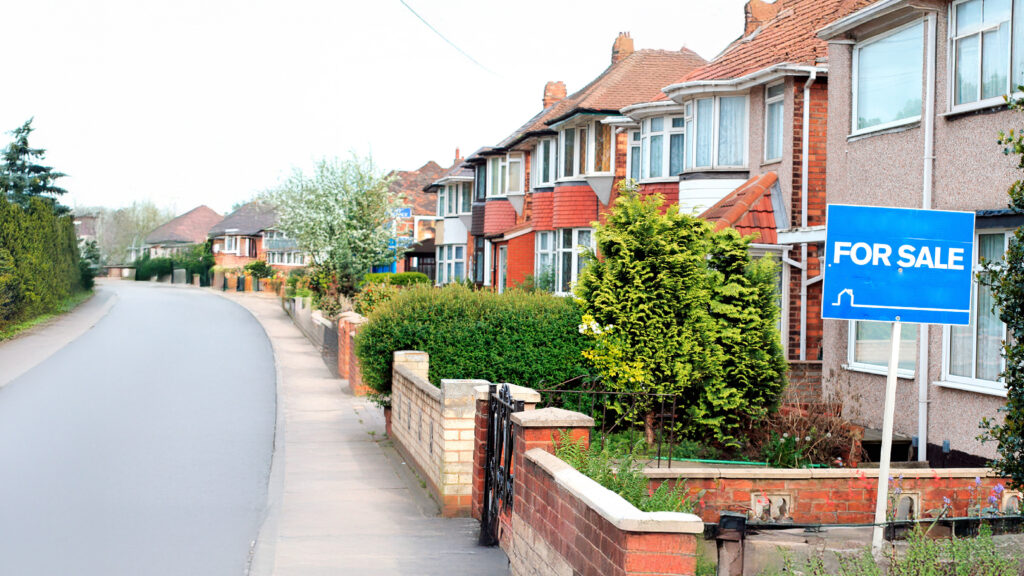
How Long Does Conveyancing Take?
The conveyancing process pertaining to the purchase of a house will typically conclude anywhere between 8 and 12 weeks after its commencement. This period will vary depending on how long the property chain is and/or how smoothly the different stages of the process move along.
Chances are the reason you’re reading this is because you’ve been asking yourself questions like “what is conveyancing?”, “how long does conveyancing take?”, or “why does conveyancing take so long?”. All of these questions spring from the broader desire to achieve a quick home sale as fast as possible and for as much profit as possible.
According to House Price Index research by Halifax, prices for UK residential properties were 5% higher in the three months leading up to April 2019 than the values recorded in the same three months of the previous year. However, the growth rate has slowed and house prices have seen a price decrease of 0.2 since February 2019. For those wanting to sell their house fast, now could be the best time to do so in order to avoid further Brexit-induced price drops.
We will give a quick overview of conveyancing, answering the question “how long does conveyancing take?” in light of the different circumstances which can affect a residential buyer or seller. Furthermore, a few tips on potentially speeding up the process and on knowing what to keep an eye out for during it will be provided.

What is Conveyancing?
Conveyancing is an essential procedure which one must go through when buying or selling a house. It is the legal transfer of property from one party to the other; a process which contains within it the various administrative and legal procedures which must be finalised in order to ensure than a housing transaction is lawful.
A conveyancing solicitor or licensed conveyancer will typically act on behalf of the buyer so as to guarantee the receipt of current title deeds to the property in question.
Now that you understand what conveyancing is, let us take a look at a few factors which could potentially delay the process, with a view to identify any potential pitfalls or particularly time-intensive stages.
Why Does Conveyancing Take So Long?
There are a number of factors which can cause long delays in the conveyancing process. Some of these could even see the procedure conclude in more than 5 months – a disaster if your financial security depends on selling your house in a timely manner. These are:
- Buyer’s mortgage status
- Property chains
- Delays relating to the survey
- Slow, unresponsive, or deceitful buyers
However, by familiarising yourself with them now, you’ll hopefully be able to avoid any stumbling blocks you might encounter in the future.

Buyer’s Mortgage Status
The conveyancing process begins once an offer for the property has been accepted. The preliminary stages are spent putting together various forms of paperwork relating to the transaction. Your solicitor will handle all the papers for you, but it is always a good idea to become acquainted with the information contained within these yourself.
Before you can move to the next stage, the buyer’s offer must be accepted and, if applicable, his mortgage application must be approved.
One potential pitfall comes at this early stage only if the buyer needs a mortgage in order to purchase the property. Many buyers aren’t aware of the fact that being pre-approved for a mortgage isn’t synonymous with having an accepted mortgage offer.
Obtaining a mortgage offer is subject to the lender completing an independent valuation of the property and carrying out any necessary checks (such as risk-analysis checks). Only after these have been completed by the lender, and any required paperwork has been put together, will they issue a formal letter. There is very little either you or the buyer can do in order to speed up the process; the lender will take all the time they need to ensure that the mortgage can be approved.
If you want to sell your house fast, you’ll need to get as much information about your potential buyer’s mortgage status before you accept their offer. Only accept an offer if the buyer has a Mortgage Agreement in Principle (AIP). Such an agreement, which also specifies the mortgage limit, is only granted after extensive credit checks are undertaken by the lender. Only accepting offers from potential purchasers who have an AIP will ensure that you won’t encounter long delays while the buyer attempts to get approved for a mortgage.

Property Chains
One of the worst pitfalls which those looking to sell their house fast can encounter is represented by long property chains.
If you’d like more in-depth information on this hurdle, check out our other blog post on property chains. For now though, all you need to know is that property chains are a group of property transaction which are linked to one another. Each house relies on the successful sale of every other property in the chain. Those at the beginning of the chain wish to buy a house but have nothing to sell, while the individuals at the end of the chain have nothing to buy.
If you’re caught in a property chain, you will most likely be faced with delays – the bigger the chain, the longer the delays. This is because if your buyer is relying on the proceeds coming from his house’s sale, you automatically depend on these funds clearing first so that your purchaser can then pay you. Any delays which occur somewhere along this property chain will affect you.
It is very difficult to provide advice for those stuck in property chains because, most of the time, there is nothing they can do. They depend on other people sticking to the proposed schedule so that all transactions go through on the same day, and so that all the necessary funds reach their respective destinations in time.
The best thing you can do if you’re stuck in a property chain and need to sell your house in a timely manner is to communicate with your solicitor and the other solicitors or individuals involved in order to try and smooth out the process. You need to make sure you’re on schedule and, if nothing else, hope that everyone else will be as well.
Delays Relating to the Survey
Delays often occur during the surveying process. If your buyer requires a loan, his lender will need to schedule a valuation survey. In order for this to happen, the seller must provide access to the property at an agreed upon time. Delays can happen here if sellers are too busy to provide access to the property or if they’re intentionally trying to impede the process by being uncooperative.
Even sellers who want the process to move along as fast as possible might see the conveyancing procedure delayed at this stage. This can happen out of no fault of their own, if, for example, incorrect contact details are passed along or other similar misunderstandings occur.
Furthermore, delays can happen if, following the survey, property defects are revealed. Depending on how serious these are, a further visit might be required. Usually either reparations will need to be carried out before the transaction can go through, or a price reduction will be required. The cost and timeline for reparations or the price reduction will need to be agreed upon by both parties. These negotiations can drag on for quite a while and can totally derail your timeline.

Slow, Unresponsive, or Deceitful Buyers
Slow or unresponsive buyers can cause huge problems for those needing to sell their house fast. If you’re caught in a property chain like the ones mentioned above, you could end up losing the chance of purchasing your desired house due to funds from your buyer not clearing on time.
However, an even bigger threat is posed by buyers who gazunder. Gazundering is lowering the offer put forward to a seller right before contracts are exchanged.
This obviously puts the seller in a tough spot; maybe even in a situation where they’ve found their next home and are now either forced to accept a lower offer just to make sure they don’t lose it, or are unable to purchase the new property with the proceeds coming from the recently lowered offer.
If you notice your buyer becomes unresponsive, try talking to them and asking whether or not they still genuinely want to purchase the property for the price you’ve already agreed upon. If not, you can start planning ahead accordingly.
In case your potential buyer decides he doesn’t want to purchase the property anymore, check out our post detailing what to do when a buyer pulls out of a house sale.
How Long Does It Take from Draft Contract to Completion?
This is a question which gets asked a lot and which, as you might already intuit, cannot be definitively answered. Even an experienced solicitor who has all the information pertaining to your transaction will have a hard time reaching an exact figure (and most will shy away from making such predictions).
If everything runs smoothly, the process can take anywhere from 1 to 3 weeks. However, any of the roadblocks detailed above can add weeks and even months to your wait time. Again, the best course of action you can take is to keep communicating with your solicitor every step of the way and try to solve problems as soon as they come about.
A Couple of General Tips:
Communicate and Keep Up:
Even if your solicitor will be doing most of the work, it’s a good idea to keep in touch with them throughout the process to ensure that you’re up to date. If you’re not kept in the loop you could find yourself in a situation where the deal is jeopardised and you aren’t able to do anything to prevent this from happening.
By communicating with your solicitor at every stage of the process, you will be able to immediately react to any issues and perhaps fix them. A good tactic to ensure that this happens is to ask your solicitor to CC you in any emails concerning the property sale.

Choose the Best Conveyor Available:
The conveyor you choose will have a huge impact on how smoothly the process runs. If you know someone who has used a conveyor in the past, ask them about their experience and whether or not they would recommend you use the same individual or company.
When sifting through conveyancing firms, look for those which have been awarded the Conveyancing Quality Scheme certificate (or CQS). Firms who hold this certification have been recognised as having provided exceptional service and will certainly know what they’re doing.
Closing Remarks
As you can see, how long conveyancing will take depends upon a number of factors. If you want to sell your house in a timely manner, you should make sure you do everything in your power to keep the process running smoothly. Looking to do business with first time buyers is a good idea as this means you will avoid being sucked into a property chain which, as we’ve seen, causes the longest delays.
We’ve previously provided tips on how to sell a house quickly for a good price. Reading through this guide might help you save some time and be a bit more relaxed when going through the conveyancing process.


